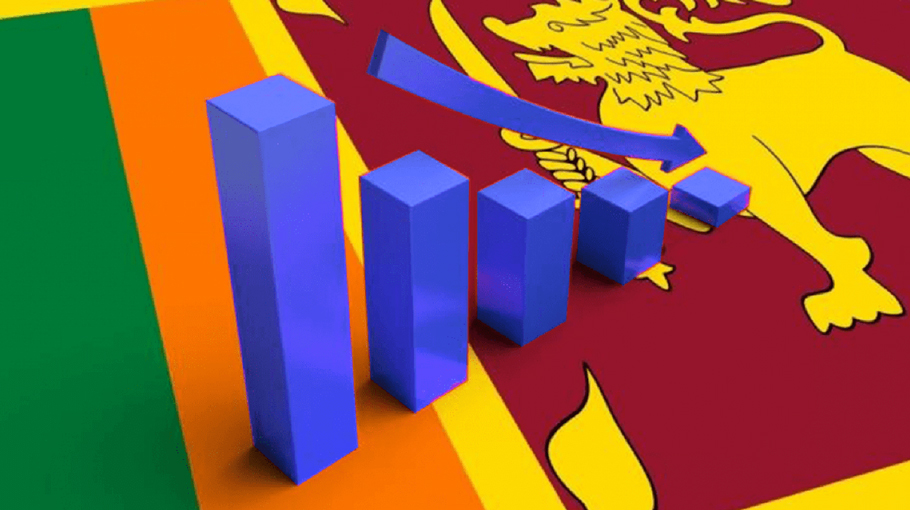Lessons from Sri Lanka’s economic crisis

The visuals of Sri Lanka’s presidential palace being overrun by protesters, like the storming of the Bastille, and Prime Minister Ranil Wickremesinghe’s private residence being burnt to ashes sent shockwaves across the world. Especially in the Indian subcontinent, where Sri Lanka has been regarded as educationally and socially much more advanced than its neighbour. The instability, now descending into chaos, is a warning sign that our world is in a dire crisis.
In a contrary arena, sports lovers were disappointed on Saturday, which was also Eid Al Adha, that the highly talented and gritty Ons Jabeur did not become the first African, Muslim, as well as Arab-Berber woman to win the Wimbledon ladies championship. Her performance throughout the tournament was superb, amply justifying her ranking in the world’s top three. She was outplayed by the much younger Russian-Kazak Elena Rybakina, the new champion. Rybakina, the first Kazak player to win the Wimbledon women’s title, brought credit to the small central-Asian nation. The men’s final went Novak Djokovic’s way. The Serb won his seventh title, defeating the maverick Australian, Nick Kyrgios, in a thrilling final.
In Sri Lanka, the hope is that a multi-party emergency government, with integrity and national interest as its watchwords, can restore order and normalcy. Exports and tourism must be enhanced, along with new avenues to increase the government’s income.
The contrast of the stylish and stately Sunday Wimbledon final, despite British Prime Minister Boris Johnson’s resignation, with Sri Lanka’s misery and disorder could not be more stark. In the United Kingdom, despite political disorder, the elegant ladies and gentlemen watching at the All England Lawn Tennis and Croquet Club, soon to celebrate its 153 anniversary on July 23, presented a picture of affluence, order, stability, and continuing sporting excellence, with spectators from all over the world, some privileged few, no doubt, from Sri Lanka itself.
Back in Sri Lanka, however, petrol is not just over 500 Sri Lankan rupees to a litre, but simply unavailable. Cooking gas for the domestic home and hearth is almost impossible to find; people have resorted to burning twigs and branches to keep their rice pots boiling. Food prices have skyrocketed, rising over 40% in the last few months. There are huge power cuts, with homes and offices deprived of electricity for several hours.
Schools and colleges are closed. Government offices work only four days a week. The balance of payments crisis is so bad that the country has simply run out of foreign exchange to pay for its imports. And now, ordinary people seem to have overthrown a once-popular government for utterly mismanaging the economy and ruining their beautiful island nation.
On the one hand, the coup by citizens might be hailed as a peaceful revolution, the expression of people’s power in a still functional democracy. On the other hand, it might be seen as a matter of grave concern. With President Gotabaya Rajapaksa, who fled his official residence — some say using a secret underground tunnel — and PM Wickremesinghe announcing their resignations, the political uncertainty in the country will continue. The parliament is expected to appoint a president and a prime minister for its tenure. Perhaps, there may even be fresh elections.
While the new leadership will try to hasten yet another International Monetary Fund (IMF) bailout, its 17th in seven decades, the country’s fundamental financial problems will not be solved instantly. The country of 22 million is heavily dependent on foreign tourists and remittances, but both have declined after the church bombings of Easter 2019 and the Covid-19 pandemic. The war in Ukraine has triggered worldwide instability with rising fuel prices, inflation, and political uncertainty, as signalled by former Japanese Prime Minister Shinzo Abe’s assassination a few days back.
The simple rule of thumb of spending less than you earn applies to nations as much as individuals. Except, paradoxically, the United States, which can go on printing money, it would seem, to fund its never-ending appetite for conspicuous consumption. But for how long? Inflation, soaring fuel prices, and increasing inequality have added strain on its already worn, if not torn, social fabric. Coupled with a feeble leadership, the world’s leading power is able to command neither the respect nor the power to stabilise the world order like it once had.
In Sri Lanka, the hope is that a multi-party emergency government, with integrity and national interest as its watchwords, can restore order and normalcy. Exports and tourism must be enhanced, along with new avenues to increase the government’s income. India is doing what it can, with promised aid of over $4 billion. But Indian leaders and mandarins will have to closely monitor and manage its economy, which faces similar challenges to its neighbours.
The crisis is, after all, not local but global. Mounting debt, social unrest, food shortages, and out-of-control fuel prices are some key causes of spreading economic gloom in rich and poor countries. But, each country must find its way to face its peculiar conditions and challenges. The response to crises, therefore, to reinvoke a once-fashionable but now nearly forgotten neologism, will have to be glocal — meet global calamities with local opportunities.
For us in India, the lessons from Sri Lanka should be obvious. Strong, if not visionary, leadership, social cohesion, fiscal prudence, and the smart steering of the ship of state through globally troubled waters. As opposed to excessive populism, doles, bailouts, ideological grandstanding, and continuous civil unrest. The latter are among the biggest threats to democracies and free societies the world over. Let us wake up: for us, despite the worldwide contagion, the enemies are much more internal rather than external.
Makarand R. Paranjape is a Professor of English at the Jawaharlal Nehru University. Source: Gulf News


